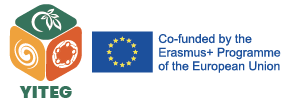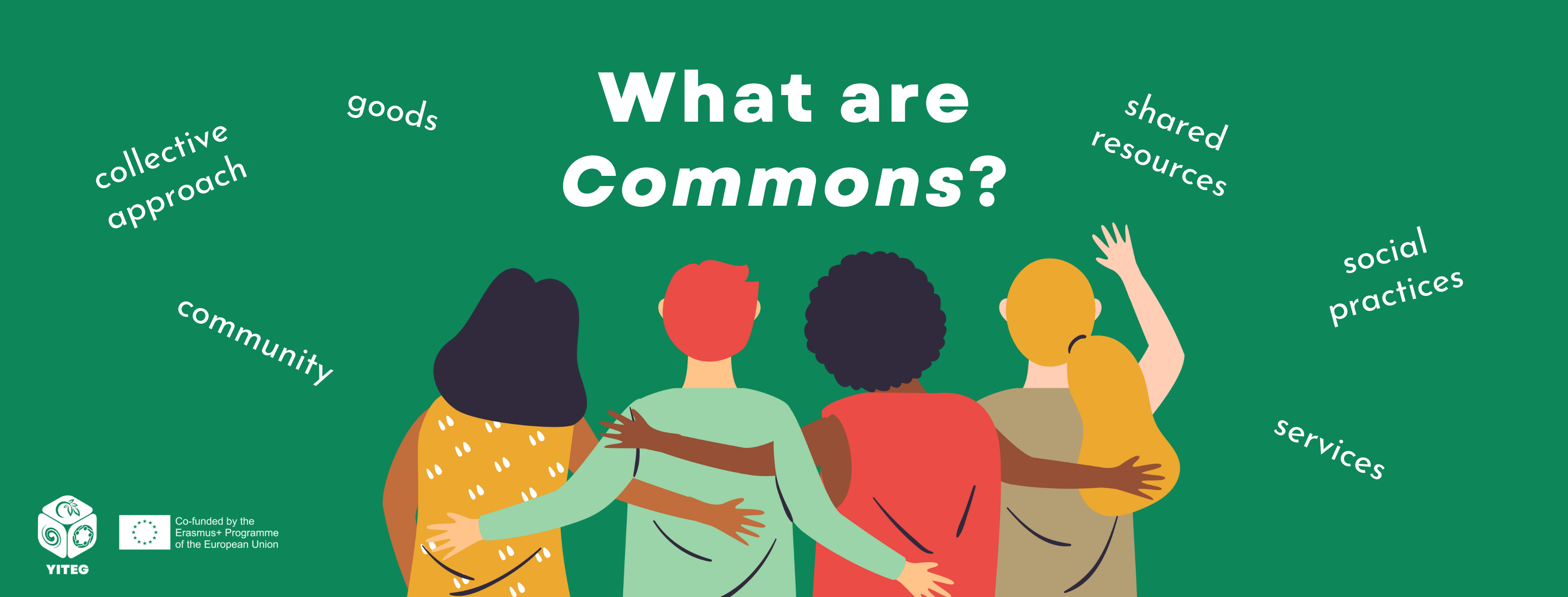Within the Erasmus+ project YITEG (Youth Impacting Transformative Economies through Game-design), we consider the Commons and commoning as one of the main branches of Transformative Economies.
Commons are shared resources of any kind. The goal of the commons and of commoning is to provide goods and ideas to everyone, without any discrimination.
The concept of the commons is a clear non-capitalist one, it aims for the provision of goods and services equally and with a collective approach. There are as well social practices of commoning — acts of mutual support, conflict, negotiation, communication and experimentation that are needed to create systems to manage shared resources.
Furthermore, the idea of community is crucial for the commons; around any forest, lake or cultural centre, a community should be able to be in charge of its use and organisation, if needed. Natural resources are most known as possible commons, others are created by commoners as the examples below.
Examples of common creations:
- Open-value networks such as Sensorica and Enspiral, which function as collaborative digital “guilds” of entrepreneurs and socially minded commoners.
- Buying clubs and reconfigured production/supply chains for mutual benefit. Examples include the clothing production system developed by the Solidarity Economy in Italy and the Fresno [California]
- Commons that is reinventing the regional food supply chain through a commons-based trust.
- State-chartered stakeholder trusts that mutualize the revenues generated by state-owned resources (Alaska Permanent Fund and new models proposed by Peter Barnes).
- Open source programming communities that freely share code and sometimes are directed by affiliated foundations led by respected elders of the community.
- Global peer production design and local manufacturing communities that are creating modular, low-budget cars, farm equipment, furniture and other physical products.
What is transformative about Commons?
The process of commoning blends production (self provisioning), governance, culture, and personal interests into one integrated system. By demonstrating the superiority of commons-based systems (e.g., free or open-source soft-ware development, local food provisioning, cooperatives, alternative currencies), commoning creates quasi-independent, socially satisfying alternatives to capital-driven markets. The Commons paradigm offers hundreds of well working examples that are increasingly converging.
Commoners are focused on reclaiming their “common wealth,” in both the material and political sense. They want to roll back the privatisation and marketization of their shared resources and reassert greater participatory control over those resources and community life.
Unlike markets, commoners do not treat their environment as something to be exploited but to be taken care of and used in a conscious way. Commoners revert overused natural resources and ways of production sustainably and linked to the needs of all beings involved, so as to say, they transform degeneration into regeneration.
Last but not least: Elinor Ostrom’s landmark 1990 book, Governing the Commons, is renowned for identifying eight key “design principles” for successful commons. For this work, Ostrom won the Nobel Prize in Economics in 2009, the first woman to be so honored.
Literature
David Bollier: Commoning as a Transformative Social Paradigm
— http://www.socioeco.org/bdf_fiche-document-4865_fr.html
Commons projects
- Commons Lab Greece: https://commonslab.gr/

